
Choosing a Classroom Audio System
The right classroom audio system delivers sound effortlessly and clearly.
How Do I Choose the Right Audio Solution?
An effective system evenly distributes all classroom audio sources so every student hears equally well.
Here’s how to determine your specific classroom needs.
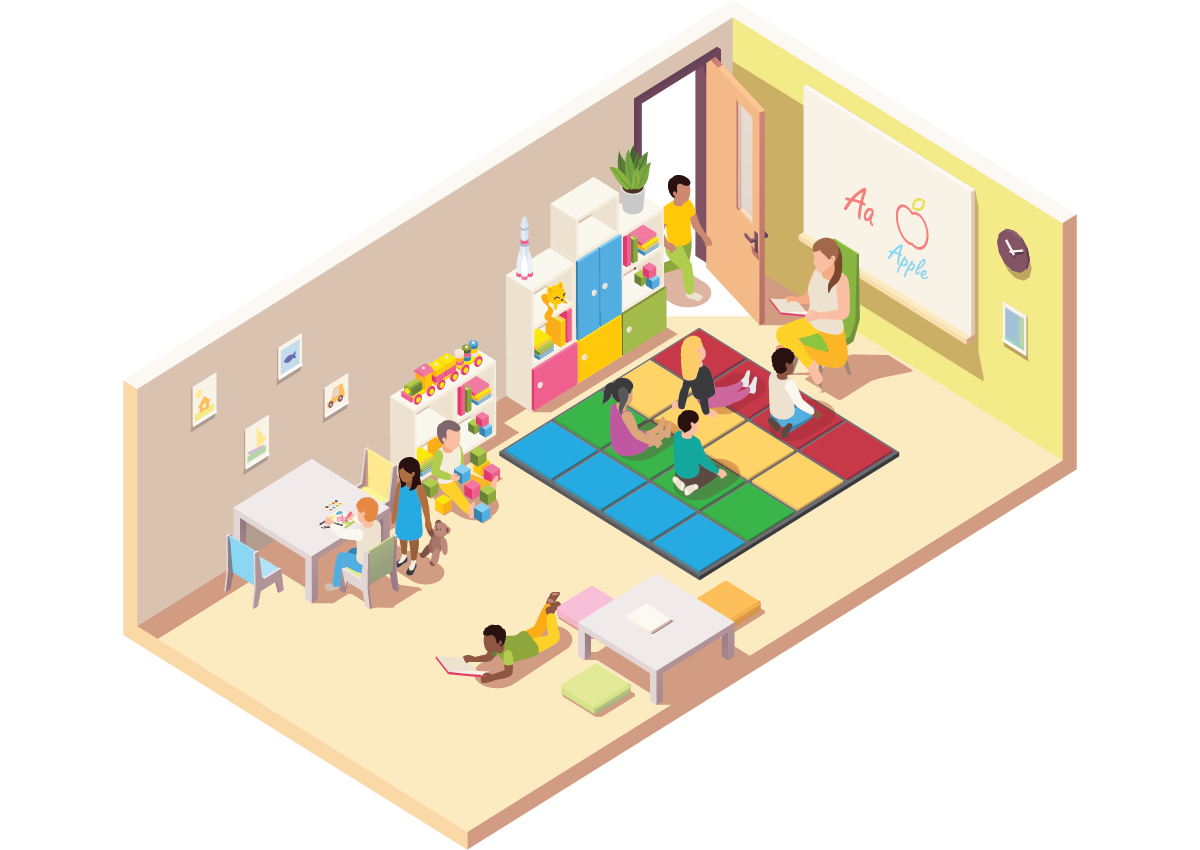
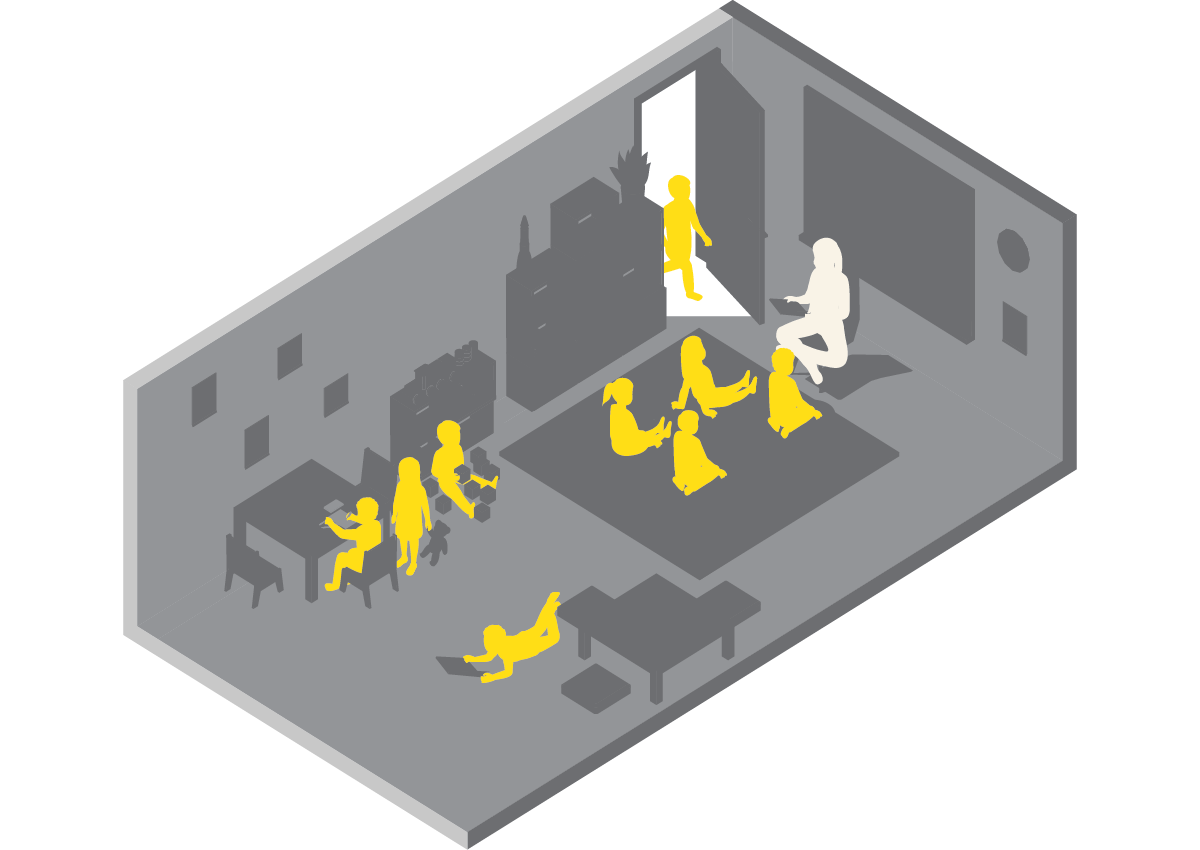
Small Classroom
Size: 400-600 ft2
Number of students: <10
Even small rooms with few students can be too noisy for students to hear clearly, and the younger they are the more help they need.
Check out our recommendations for small classrooms.


Regular Classroom
Size: 900-1600 ft2
Number of students: 11-32
The standard K-12 classroom is about 900-1000 ft2. A single sound source can’t fill it anymore than a single bulb can light it.
Check out our recommendations for medium classrooms.


Large Classroom
Size: 1600+ ft2
Number of students: 32+
Whether the space is large or you have a lot of students, the ideal system needs to create a “Sound Field” to equally distribute all audio sources.
Check out our recommendations for large classrooms or cafeterias.


Small Classroom
Even small classrooms can become noisy. Background sounds from ventilation systems, hallway noises, and restless peers can interfere with students’ ability to hear.
Depending on your classroom set up, you may be able to use a standalone, portable system or add-on microphone. If your environment is more challenging, you may benefit from a more fully-integrated audio system.
Small Classroom? Here Are Your Audio System Options.
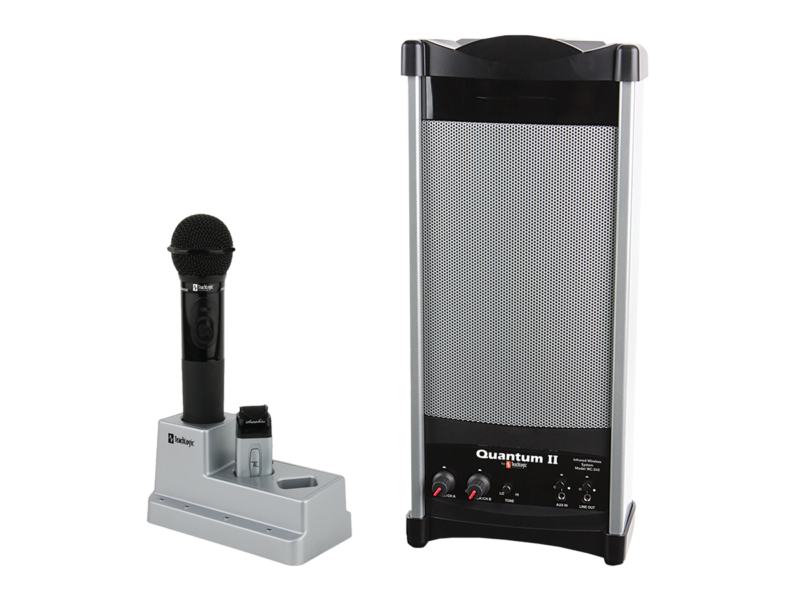
Standalone,
Portable Systems
The Quantum II combines an amplified speaker and microphone receiver into a single, portable unit. It’s built for small classrooms where moderate amplification is required, with no installation needed.

Complete System
A fully integrated audio system combines wireless mics, amps, and multiple speakers to deliver crystal clear sound throughout the room. This option may be essential for smaller classrooms with poor acoustics or background noise.
Regular Classroom
The typical K-12 classroom can present the teacher with a variety of audio challenges. Particularly in light of ongoing safety measures, students may be spaced far apart, and teachers may not be able to move freely.
A medium classroom needs at least 4 speakers to distribute clear audio to the 4 corners of the room to eliminate “dark” spots. One of the two options below may be right for you.

Regular Classroom?
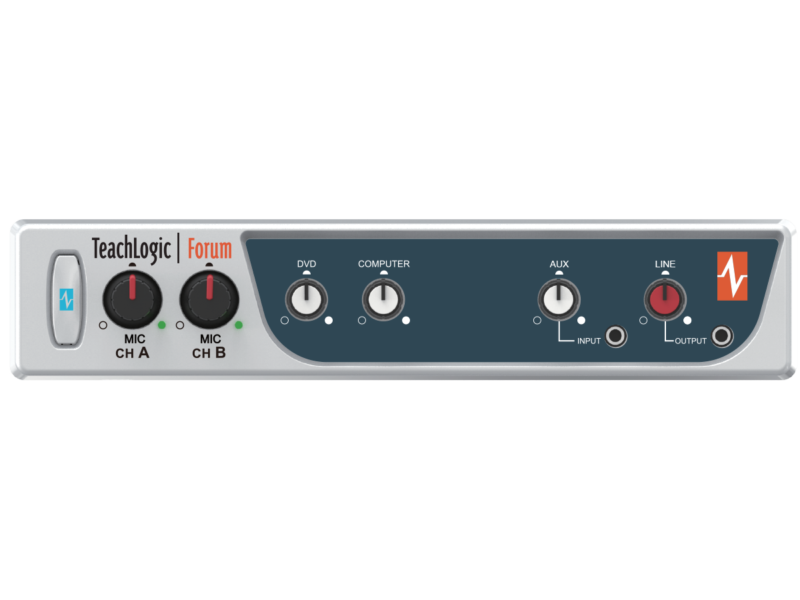
Amplify Audio Sources
The Forum™ in our entry-level amplifier to increase your learning outcomes from all instructional audio sources.
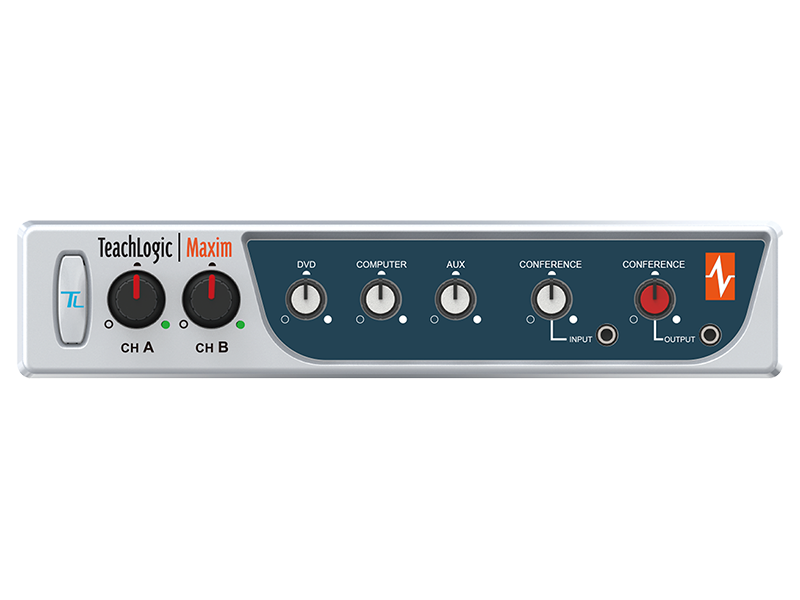
Amplify Audio + Maintain Life Safety
The Maxim™ amplifies all audio sources connected to it, works with 3rd party wall controllers, and connects to fire alarm, intercom, and security alert systems.
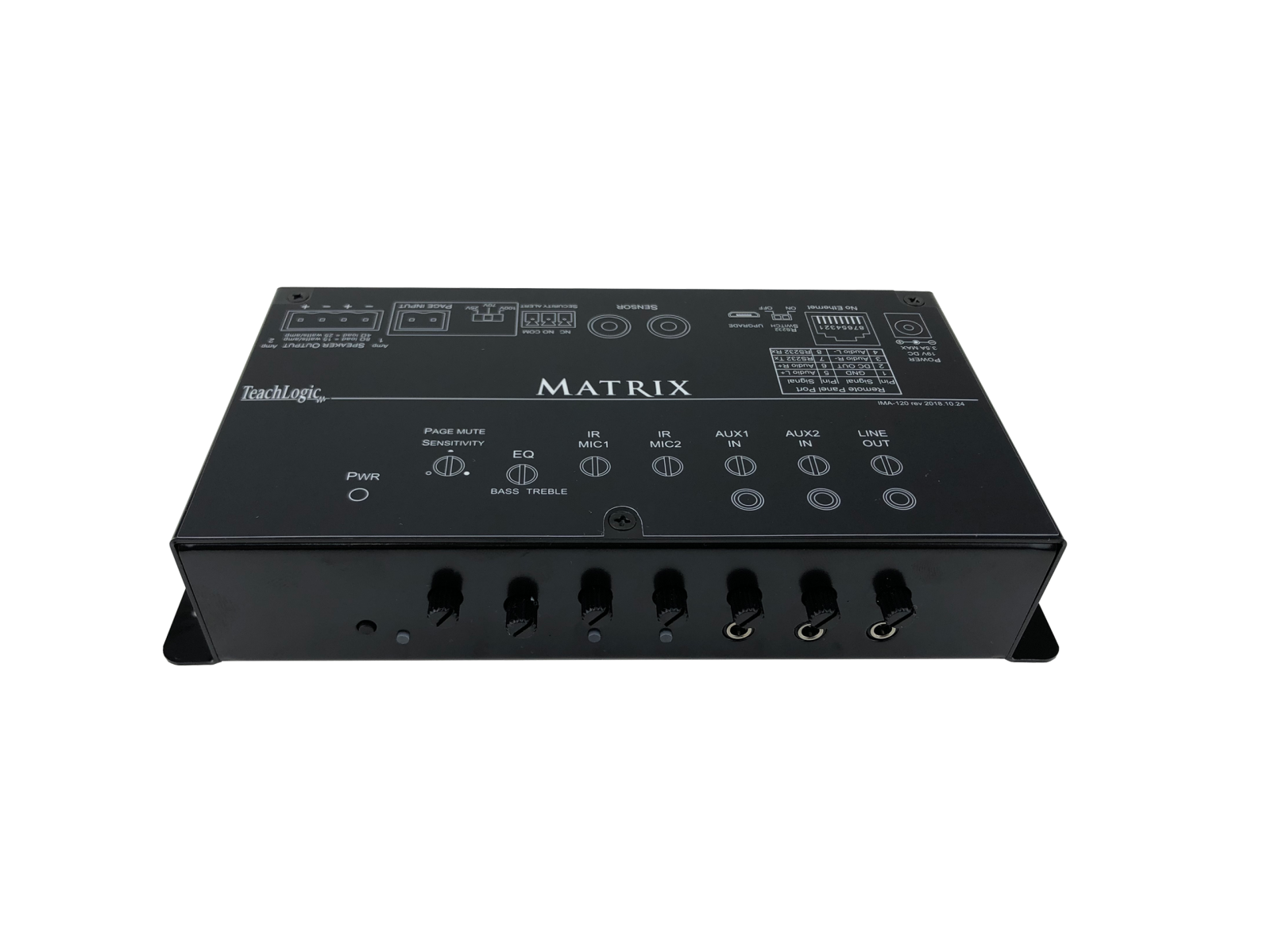
For Out of Sight Installation
The Matrix™ is ideal when you need to put the amplifier in a ceiling or wall vault and use a remote control panel to control the audio sources.


Large Classroom
A large classroom, cafeteria, or two connected classrooms require a more robust audio system that equally distributes all audio sources to create a “Sound Field” layer.
This requires 6-8 speakers to fill the room with crystal clear sound, an amplifier to transmit audio through speakers, and a microphone to ensure the teacher’s voice is understood regardless seating arrangements.
Large Classroom?
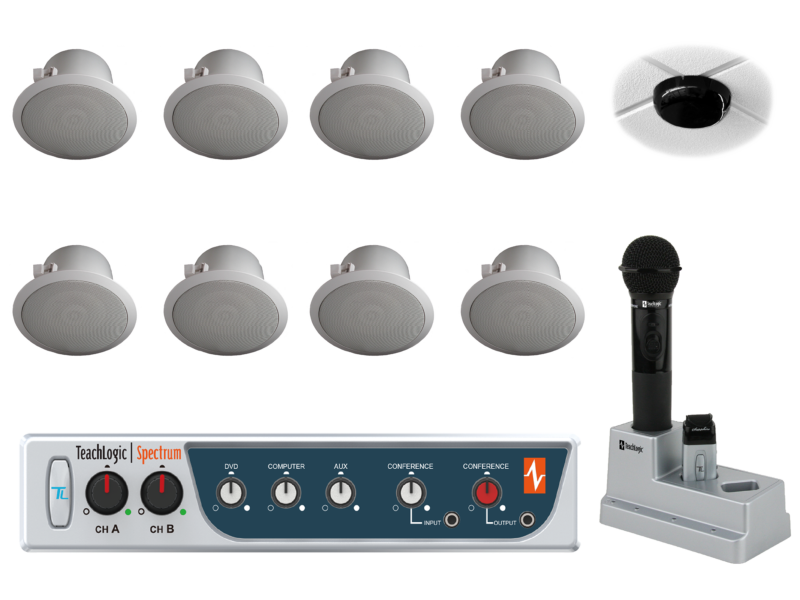
Complete System
Essential for large classrooms, a fully integrated audio system combines wireless microphone(s), amplifier, and multiple speakers to deliver crystal clear sound throughout the room.
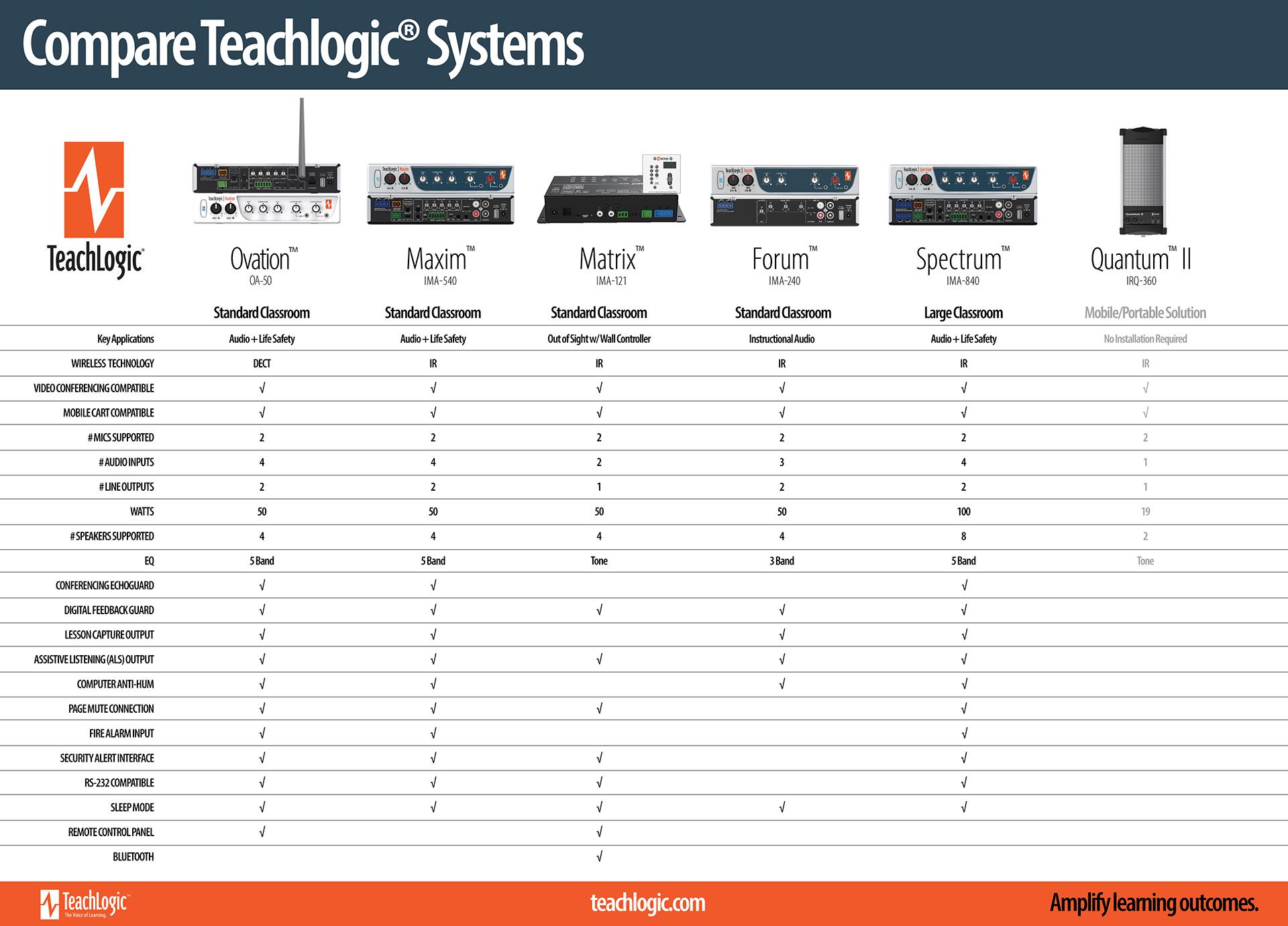
Get an Audio System for Your Classroom
(You may be able to qualify for ESSER funding.)
Request a Quote, or share the link to this page with your district’s decision maker.
